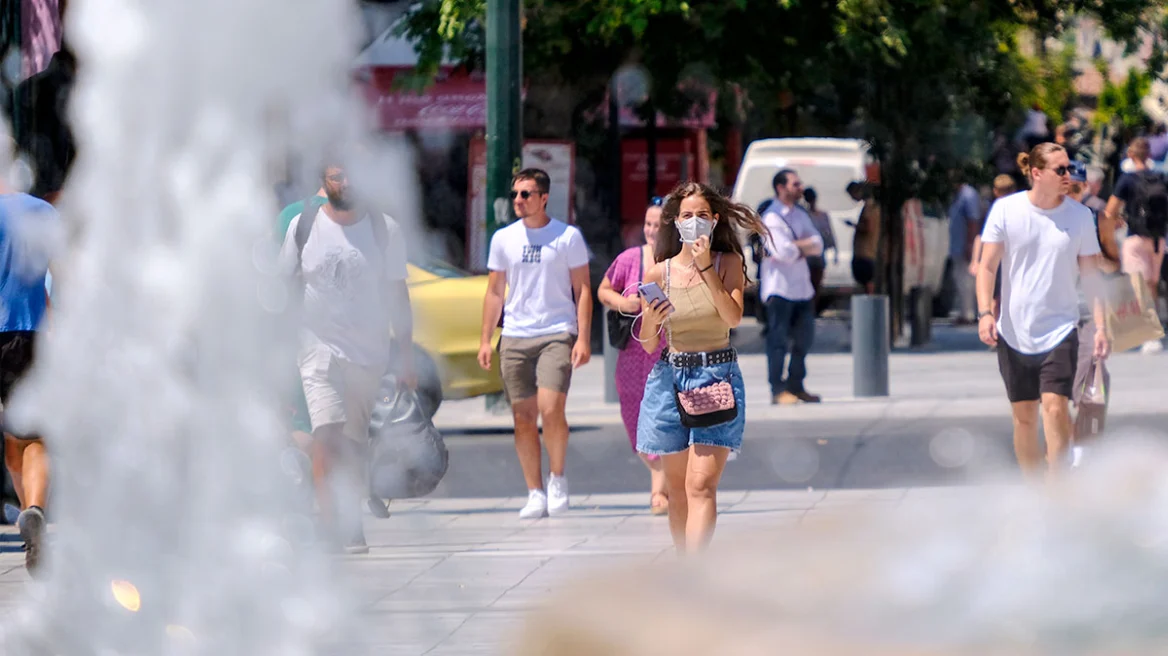More than 520 patients with severe COVID-19 infections are hospitalized in the internal medicine and pulmonary clinics of the country’s hospitals, with 90 of them in Intensive Care Units. The wave of admissions has remained consistently high in recent weeks – just yesterday, it reached nearly 100. Deaths of patients with COVID-19 are also on the rise, with the overwhelming majority of those who died being over 70 years old.
Experts attribute the surge in COVID-19 cases to three factors:
a) The BA.2.86 variant, with the F456L and R346T mutations, which is highly transmissible, evades immunity, and facilitates easy transmission.
b) Increased social gatherings due to summer activities, travel, concerts, and holidays.
c) Waning immunity from either vaccination or previous infection.
Nearly half of the hospitalized patients are in Attica hospitals. These healthcare facilities, which have been at the forefront since the beginning of the pandemic, continue to bear the brunt of patient admissions. According to the latest data, yesterday, the University Hospital of Patras had 23 COVID-19 patients, while “Evangelismos” and “Sotiria” had 40 each. “Attikon” had 19 patients, “Gennimatas” had 16, “Agia Olga” had 14, and “Amalia Fleming” had 13. Additionally, 22 patients were in hospitals in Crete.
A significant number of patients have also been reported in a specialized hospital, the Attica Psychiatric Hospital (PSNA). Approximately 25 patients hospitalized for mental illness are now also infected with COVID-19. The hospital proved vulnerable and unprotected against the coronavirus as the outbreak among mentally ill patients occurred about three weeks ago.
SOS from EODY for the protection of the elderly
The hard indicators (admissions, hospitalizations, deaths) starkly illustrate the summer surge of COVID-19 in our country. They underscore the recommendations of experts for the protection of everyone from infection, especially the elderly and vulnerable who are at high risk from COVID-19 and its complications.
In its weekly report yesterday, the National Public Health Organization (EODY) made recommendations for both the elderly and the general population. Specifically, it emphasized the meticulous adherence to hygiene and prevention measures for vulnerable population groups (elderly and individuals with underlying health conditions) and the timely seeking of medical advice upon the onset of symptoms to receive early treatment. It also appealed to the general population to be aware and responsible when meeting elderly or vulnerable individuals if they have respiratory infection symptoms.
How COVID-19 is spreading across the country
As expected, the coronavirus is following the pattern of summer travel. According to data from the National Wastewater Epidemiology Network, a decrease in viral load in wastewater was observed only in Attica (-22%). This can be attributed to the movement of residents out of the metropolitan area to other regions for holidays and correlates with the increase observed in all other regions of the country.
Specifically, a clear upward trend was observed in Heraklion (+101%), Ioannina (+65%), Xanthi (+62%), Patras (+40%), and Larissa (+39%), while the increase was marginal in Volos (+21%), Thessaloniki (+18%), and Alexandroupolis (+17%). Stabilization was noted in Chania (0%).
Ask me anything
Explore related questions





